Conference Panelists
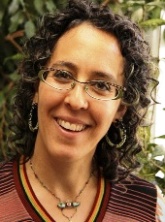
Melissa Ambrose
MELISSA AMBROSE, LCSW/PPS, completed her Master's degree in Social Work at San Francisco State University where she earned the highest academic honors award. Prior to her current job as Wellness Counselor, she taught Humanities for nine years at Oceana High School in Pacifica, CA. She participated in Mindful Schools’ curriculum training in 2010, is currently enrolled in their year-long teacher training, and teaches mindfulness at Oceana. She also participated in the Greater Good Science Center (GGSC) Summer Institute for Educators in 2013. She is a board member of the Daly City Youth Center and of Pyramid Alternatives, a local mental health agency.
Experiments in Mindfulness
Co-presenters, Melissa Ambrose and Laurie Hughes, will share their experiments in mindfulness at a public high school. Their findings support their continued efforts in engaging students with mindfulness practices: 84% of students surveyed reported they would like more teachers to use mindfulness activities in their classrooms. Anecdotal evidence suggest that mindfulness helps students to reduce stress and gain tools to improve their quality of life. In course evaluations students articulate that the mindfulness practice also helps to create a safe and nurturing classroom environment. Finally, both educators will touch on the importance of their personal mindfulness practices in terms of helping them work skillfully and compassionately with students, many of whom have tremendous personal struggles.
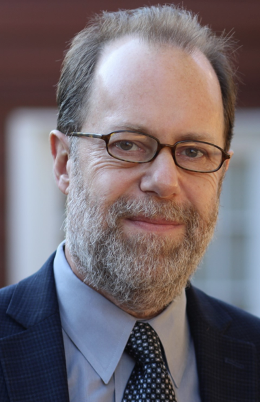
Randall Amster
RANDALL AMSTER, J.D., Ph.D., is Director of the Program on Justice and Peace at Georgetown University, and serves as Executive Director of the Peace & Justice Studies Association. His articles have appeared in journals including Peace Review, Contemporary Justice Review, and the Journal of Sustainability Education, and he has been a regular contributor to online publications such as Common Dreams, Huffington Post, and Truthout. Included among his books are Peace Ecology (Paradigm Publishers, 2014), Anarchism Today (Praeger/ABC-CLIO, 2012), and Lost in Space: The Criminalization, Globalization, and Urban Ecology of Homelessness (LFB Scholarly, 2008).
Toward an ‘Ethics of Care’ for the Earth
The ‘ethics of care’ emphasize values such as empathy, interdependence, and a sense of responsibility for the wellbeing of others. This is not so much an ethic of altruism as one of compassion, based on the inherent interconnectedness of all things and the fundamental realization that we are enmeshed in a web of relationships. What would it look like if we applied these ‘ethics of care’ to our relationship with the environment? How can we extend the lessons of care ethics beyond society and culture to include ecological phenomena as well? This presentation will explore our potential to reinvigorate a sense of caring for the Earth itself, drawing upon illustrations of communities that have begun to weave the ‘ethics of care’ into their everyday practices and long-term visions alike.
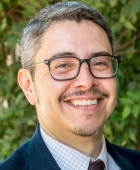
Christian Bracho
CHRISTIAN BRACHO is a doctoral candidate in the International Education program at New York University. His research focuses on educational reform, teacher training, and teacher movements in Latin America. A former high school teacher and teacher trainer,Christian now works as a consultant for the Los Angeles County Office of Education. He is a recipient of a 2005 Ahimsa Center Summer Fellowship for K-12 Educators, and has since served as as a curriculum workshop facilitator at four subsequent K-12 institutes at the Ahimsa Center.
Care, Compassion, and Mindfulness in the K-12 Curriculum
Nonviolence education is a powerful force for transformation. Teachers trained at the Ahimsa Center at several K-12 institutes report integrating nonviolence into their personal and professional lives. In experiencing care, compassion, and mindfulness at these institutes, teachers leave empowered to cultivate these same values in their interactions with students, colleagues, and communities. Examining teachers' accounts of how these transformations- both within themselves and in their spheres of influence- demonstrates why nonviolence education is a valuable and critical component of K-12 education.
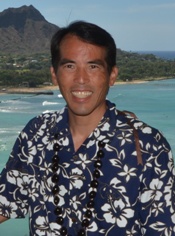
Kozo Hattori
KOZO HATTORI is a counselor for men and parents at PeaceInRelationships.com. Kozo received his Masters Degree from UC Santa Barbara where he focused on Asian American Masculinity. He is also a certified graduate from Interchange Counseling Institute and the Cultivating Compassion Class at Stanford University. His life and his work are dedicated to cultivating compassion in men and boys, himself included. He is currently working on a book entitled Raising Compassionate Boys. His articles have been published by The Greater Good Science Center, The Good Men Project, Mindful Magazine, and Yes Magazine.
Raising Compassionate Boys
In response to the plethora of school shootings, sexual assaults, and viral humiliations, Kozo Hattori, father of two sons, has dedicated his life to raising compassionate boys. His presentation suggests that cultivating compassion in our children not only protect them from the rampant violence, cruelty, and suffering in our society, but also lead them to better health, well-being, and relationships. Drawing on research from the science of compassion, Hattori offers daily practices to increase compassion and empathy in our children, as well as in ourselves. Creator of the Compassionate Men Interview Series, Kozo Hattori has condensed the wisdom of interviewees like Thich Nhat Hanh, Dr. James Doty, Dr. Dan Siegel, Dr. Rick Hanson, and Father Richard Rohr into a four part practice to instil compassion in children and adolescents. This talk will also include personal experiences on the challenges to cultivating compassion especially in men and boys.
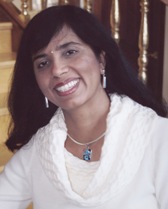
Veena Rani Howard
VEENA RANI HOWARD, Ph.D., is Assistant Professor of Asian Religions at California State University, Fresno. Her publications include the book Gandhi’s Ascetic Activism: Renunciation and Social Action (SUNY Press, 2013), and several articles such as “Rethinking Gandhi's Celibacy: Ascetic Power and the Empowerment of Women” (The Journal of the American Academy of Religion, 2013), “Non-violence and Justice as Inseparable Principles: A Gandhian Perspective” (Justice and Mercy Will Kiss: The Vocation of Peacemaking in a World of Many Faiths, 2008), and “Gandhi, The Mahatma: Evolving Narratives and Native Discourse in Gandhi Studies” (Religion Compass, May 2007). Her article, “Gandhi on Death Penalty: Extending the Idea of Metaphysical ‘Unity of all Beings’ to Compassion for All Beings,” will be published in Interreligious Perspectives on the Death Penalty (Forthcoming, 2014).
Gandhi’s Strategy for Restorative Justice: Cure Not Contempt, Compassion not Retaliation
Gandhi’s strategy of nonviolence has been utilized for confronting social and political injustices all over the world; however, his rationale for extending compassion and care to “criminals” has not received adequate attention. This paper focuses on Gandhi’s innovative vision for extending compassion for those who in the name of justice become victims of dehumanization and contempt. It analyzes the logic and practical implications of his strategies for our society as we confront the issues of criminality and social order, simultaneously engaging with ethical questions of justice, mass incarceration, and the death penalty. I ask: what were the foundational elements of Gandhi’s philosophy of restorative justice? Might his methods for the treatment of “criminals” help us develop approaches that disrupt the vicious cycle of violence and retribution?
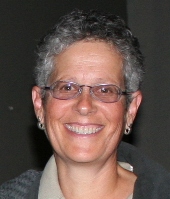
Laurie Hughies
LAURIE HUGHES teaches humanities at the Oceana High School in Pacifica, CA. She was recognized as Educator of the Year for California Region 4 in 2008. She is the founder of the Oceana Garden Project, which won a 2013 California School Board’s Golden Bell Award, and is the Coordinator of the Oceana Senior Exhibitions, which received a 2009 Russell J. Kent Award. She is a recipient of Ahimsa Center Fellowship and participated in the 2009 Ahimsa Summer Institute. Following her participation in the the Mindful Schools’ curriculum training, she has led her students in the daily mindfulness practice.
Experiments in Mindfulness
Co-presenters, Laurie Hughes and Melissa Ambrose, will share their experiments in mindfulness at a public high school. Their findings support their continued efforts in engaging students with mindfulness practices: 84% of students surveyed reported they would like more teachers to use mindfulness activities in their classrooms. Anecdotal evidence suggest that mindfulness helps students to reduce stress and gain tools to improve their quality of life. In course evaluations students articulate that the mindfulness practice also helps to create a safe and nurturing classroom environment. Finally, both educators will touch on the importance of their personal mindfulness practices in terms of helping them work skillfully and compassionately with students, many of whom have tremendous personal struggles.
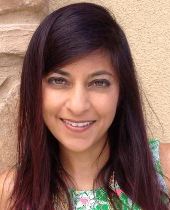
Shamini Jain
SHAMINI JAIN, Ph.D., is an Assistant Professor in the Department of Psychiatry at the University of California San Diego, where she chairs a Research Committee at the Center for Integrative Medicine. She is also the Founder and Director of the Consciousness and Healing Initiative. Dr. Jain conducts clinical research in the areas of psychoneuroimmunology and integrative medicine. Her published, NIH-funded, research in biofield healing has been featured in TIME magazine and CNN. Dr. Jain has received several awards from scientific organizations for her work. She obtained her B.A. in Neuroscience and Behavior from Columbia University, and her Ph.D. degree from the SDSU/UCSD Joint Doctoral Program in Clinical Psychology. She conducted her clinical residency at the La Jolla VA Hospital/UCSD, and her post-doctoral fellowship at UCLA’s Division of Cancer Prevention and Control Research. .
Biofield Therapies: From Sick Care to Compassionate Care
Health is a human right and one of our greatest treasures, as in the saying, Health is Wealth. However, conventional healthcare is generally described as “sick care,” and often patients experience a level of suffering, depersonalization, and isolation that can often perpetuate their illness. In contrast, Biofield therapies provide personalized care and positive therapeutic interaction with patients. This presentation will examine the use and clinical impact of biofield therapies (such as Reiki, Healing Touch, Pranic Healing) in empathetically eliciting a healing response from patients by altering their energy field. Well-designed and executed clinical trials show significant benefits of these therapies, over and above placebo effects. This presentation will educate audience about the practice, science, and impact of biofield therapies as complementary medicine, and their relevance in transforming “sick care” into “compassionate care.”
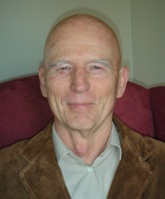
Richard Johnson
RICHARD JOHNSON, Ph.D., is Professor Emeritus of Germanic Languages at Indiana University Purdue University Fort Wayne where he co-founded Women’s Studies and directed the Peace & Conflict Studies Program. As a community activist, he co-founded the Rape Awareness Program and the Center for Nonviolence. He received his mindfulness training at the Center for Mindfulness at the University of Massachusetts Medical School. He has published a wide range of research articles, including several with a focus on Gandhian nonviolent social transformation, and two books, Ich schreibe mir die Seele frei (I Write my Soul Free) in German in 1990, and Gandhi's Experiments with Truth in 2006. He is interested in exploring the inter-connection between inner peace and peace around us.
Bryan, Ohio: An Experiment in Compassionate Mindfulness
This experiment, initiated by the Bryan, Ohio hospital, involves offering Mindfulness-Based Stress Reduction classes free of charge to the community. MBSR classes provide mindfulness practices—meditation and yoga—to bring health and wellness to participants and includes a strong emphasis on compassion and family/community connections. The presentation discusses participants’ responses to the question: How have the mindfulness and compassion practices in class and on CDs for home practice impacted their experience of self-care as well as their unfolding connection to family and to the community as a whole?

Kaltrina Kusari
KALTRINA KUSARI is a native of Kosova. She left home shortly after the Kosova war of 1999 to pursue an education that would allow her to return and help her country with its post-war development. She graduated from Quest University Canada, with a Bachelor degree of Liberal Arts and Sciences. While at Quest, she was guided by the question “How can we create happier societies?” This led to her thesis, "Happiness Through the Ages," in which she draws upon positive psychology, philosophy and history of happiness, all of which allowed her to make connections between trust and social happiness. She is currently enrolled in a graduate program at the University of Calgary, Canada.
Raising Compassionate Children
I grew up in a war-stricken country but did not endure the trauma that some of my friends did because I had compassionate parents. Through my own life story and the lessons that I learned while facilitating youth workshops over the past year, I have come to realize that children who are taught self-compassion and mindfulness are better able to recognize and express their own emotions. This ability allows them to experience personal growth and become adults who contribute to their society in various forms. Therefore, my presentation will focus on parents who practice mindfulness and compassion raise children who are able to deal with life’s struggles in a positive way.

Mark Malisa
MARK MALISA, Ph.D., teaches at The College of Saint Rose in Albany, New York. His research interests include international education and (anti) globalization as well as the preservation of African languages. He is currently working on a book chapter on the role of intellectuals in the creation of apartheid. He is drawn to the impact and influence of the South African years oin the thought of Mahatma Gandhi, and Ubuntu and the caring of orphans in Southern Africa (South Africa and Zimbabwe).
Ubuntu and Caring for Orphans in Southern Africa
This presentation will explore the ethic of care and compassion in Southern Africa, with a focus on caring from children in orphanages, using the philosophy of ubuntu, a way of life rooted in an African worldview, which has a lot in common with Gandhian ethics of care and compassion. Such ethics of care reject the practice of tribalism and sexism and encourage the use of nonviolence as well as the collective wellbeing of all (sarvodaya). St. Agnes Children’s Home, which is located in rural Zimbabwe, not only emphasizes the importance of caring for orphans, but in turn teaches them the value of caring for other human beings as well as the environment. Thus, the practice of care and compassion is not limited to human interactions, but extended to include nature, given that human beings are part of the natural world.
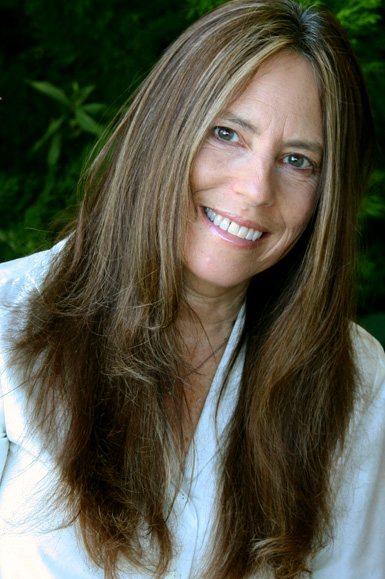
Lisa Dale Miller
LISA DALE MILLER, MA, LMFT, LPCC, SEP, is a private practice psychotherapist in Los Gatos, CA, specializing in mindfulness psychotherapy and Somatic Experiencing therapy for depression, anxiety, trauma, addiction and chronic pain. She is also an outpatient provider for the VA San Jose. Lisa is the author of a highly regarded textbook on Buddhist psychology for mental health professionals, Effortless Mindfulness: Genuine mental health through awakened presence. Training clinicians in the practical application of Buddhist psychology is her greatest joy. Lisa has been a yogic and Buddhist meditation practitioner for four decades.
Healing Moral Injury: Trauma-targeted mindfulness and compassion for Veterans
Based on her work with veterans since 2007, Lisa Miller suggests that their ongoing battles with physical injury, chronic pain, substance use and severe PTSD often assumes tragic form. This is largely due to their “moral injury” during a mission that transgressed their deeply held moral or religious beliefs and basic sense of humanity which causes them unrelenting sense of shame and self-hatred. Drawing upon anonymous war stories of such veterans, which are rarely shared for fear of recrimination and contempt, Lisa Miller discusses the effectiveness of Buddhist psychological, mindfulness-based, and Somatic Experiencing methodologies she employs in her work with Veterans.

Vlad Moskovsky
VLAD MOSKOVSKY is the co-founder and executive director of Compassionate Leaders (CL), a unique Bay Area non-profit that is redefining leadership to bring more wisdom into the world. Focusing on teens through a 12 week program, CL teaches engaged mindfulness practice. Student learn to use mindfulness in daily life through a collaborative social justice project based on design thinking. Vlad has been practicing meditation since 2000 and teaching since 2009. He teaches at Spirit Rock Meditation Center and Esalen Institute. Vlad holds a bachelors of science from Rutgers State University in Environmental Planning and Design. He is also a certified advanced yoga teacher.
Transforming Schools into Compassion Hubs
Through teaching empathyand mindfulness we inspire students to cultivate compassion as a quality of the heart. To teach empathy, we help students uncover their personal stories and connect with each other and the individuals they intend to serve. By learning to see deeply into themselves and others, students are able to transform insight into action. Mindfulness is explored both as a practice, and a state of mind. In his presentation, Vlad Moskovski will discuss the philosophical approach to inspire students to become compassionate leaders and the implications to transform schools into compassion hubs.
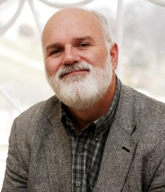
Roderic Owen
RODERIC OWEN, Ph.D., is Professor of Philosophy and Director of the Peacemaking and Conflict Resolution Program at Mary Baldwin College, Staunton, Virginia. Dr. Owen is a contributing scholar in the fields of Ethics, Mediation, and Peace and Justice Studies. His areas of research and publication include character education, interdisciplinary approaches to teaching of ethics, and itnerfaith dialogue and conflict resolution.
Bystanders and Compassion in the Face of Evil
Building systemic peace and inculcating an individual capacity for compassion are closely linked to i.) a deep analysis of evil and ii.) an examination of those who respond to evil through non-violent and compassionate means. A paradoxical challenge lies in the effort to avoid sentimental, naive or ineffectual theories of compassion (especially in the face of extreme hatred and violence), while also refusing to become ensnared in a hopelessly negative view of human nature by analyses of hate-filled, highly dysfunctional behaviors. This presentation focuses on the stories and analyses of those who have refused to stand-by as passive by-standers in the face of oppression, violence and outright evil and instead chosen to confront evil with courageous compassion.
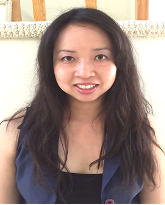
Peggy Sia
PEGGY SIA teaches at Palm Elementary school in Los Angeles County. She received her BA in Psychology and Sociology from the University of California, Irvine and MA in Education from the Claremont Graduate University.Her interests include character education, environmental education, social justice and empowerment, and nonviolent social change. She is actively involved with her school community where she has served as the secretary for her school’s Site Council. Peggy is a recipient of 2009 Ahimsa Center fellowship and participated in the Residential Summer Institute for K-12 Educators on Journeys of Nonviolence: Gandhi and King.
Essential Standards in the Public Classroom: Building a Community of Learners through Compassion
Peggy Sia shares her insights and experiences in building a community of learners in her classroom for elementary students. She will share examples of how her students practice empathy and compassion in the classroom and the positive impact it has on them. She examines how this approach enables her students to explore concepts without fear of negative judgment by their peers. Students also help and guide other students struggling with a problem or issue, thus creating an environment of give and take in the process of learning. Both parents and students report a greater sense of motivation to go to school, which in turn makes learning more enjoyable.
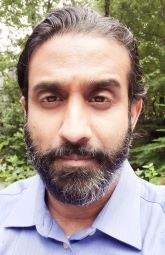
Vikas Srivastava
VIKAS SRIVASTAVA has been a counselor, teacher, and an administrator in elementary, middle and high school settings—both public and private--which has given him experience in working with students drawn from diverse backgrounds. He is a recipient of 2007 Ahimsa Center Fellowship and participated in the ahimsa summer institute on Gandhi. He was initiated into mindfulness practice by Thich Nhat Hahn which inspired him to integrate the practice of mindfulness in his classroom. Recently, he founded the Center for Mindful Education, and launched the Mindful School Project in 2013. Vikas received his Bachelors degree in Sociology from University of California, San Diego and a Masters degree in Education from Harvard University.
The Mindful School Project
In this presentation, Vikas will share his experiences in developing and leading "the Mindful School Porject," which supports school wide integration of mindfulness. It is designed as a holistic support system that serves as a functional model for students to emulate in their personal and professional lives. Schoolwide Mindfulness is an explicit commitment by school's administration and staff to evolve a new generation of leadership based on care, compassion and nonviolence. In essence, it is a template to create a culture of mindfulness in the schools.
